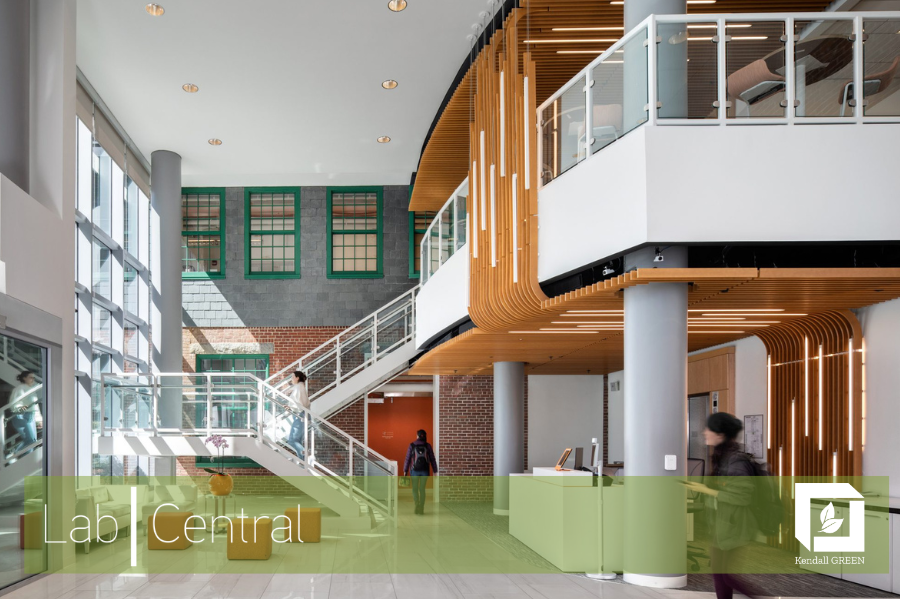While LabCentral’s mission is to produce the next generation of powerhouse biotech companies, it is also focused on creating companies that are good stewards to the community and environment. The company’s role in the latter is to set a good example for its resident startups. As Darrell Interess, Senior Manager of Safety Services and Facilities Operations at LabCentral, shares, “We understand that our own behaviors and practices are magnified by our residents as they graduate LabCentral. We have to respect that our impact is larger than our own actual footprint, so choosing to take steps in sustainability is a way to help ensure that we are contributing to the greater good.”

Upgrading Internal and External Infrastructure to Become Sustainable
From promoting best practices in cold storage management to purifying and reusing waste water, LabCentral is leading by example when it comes to ensuring its built environment is more sustainable. Their efforts include:
- Upgrading all of their fume hoods with auto-closing sashes. Eversource estimates that this saves LabCentral 190,000 kWh and 26,143 therms annually.
- Participating in the Freezer Challenge, which is run by MyGreenLabs. Second only to fume hoods, a lab’s cold storage (refrigerators, freezers, cold rooms) is likely the next biggest category of energy consumers in the lab space. The challenge helps lab managers to warm freezers from -80 °C to -70 °C, and learn how to be more energy efficient with their lab’s cold storage. LabCentral takes their participation in the challenge one step further, and adopts the behavior as a best practice all year-round.
- Switching their 940 lighting fixtures to LED. This allows the company to save 219,000 kWh annually.
- Using reverse osmosis reject water to support lab restrooms. This saves about 118,000 gallons of water for LabCentral.
Organizing and Educating the Community About Sustainability
LabCentral started a sustainability initiative within the community (which includes LabCentral staff and resident companies’ staff, as well as other tenants that work in the same building). The collective’s first big accomplishment was initiating a composting pilot in January 2023 that is still ongoing.